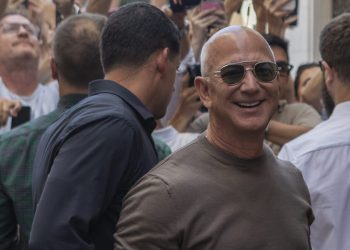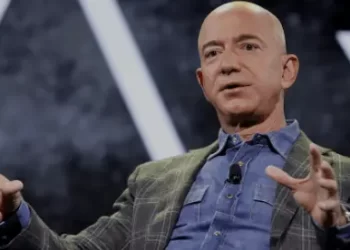Bill Walton was never afraid to be himself.
Larger than life, only in part because of his nearly 7-foot frame, Walton was a two-time NCAA champion at UCLA, a two-time champion in the NBA, a Basketball Hall of Fame inductee, an on-court icon in every sense of the word. And off the court, Walton was a chronic fun-seeker, a broadcaster who adhered to no conventional norms and took great joy in that, a man with a deeply serious side about the causes that mattered most to him.
“Bill Walton,” NBA Commissioner Adam Silver said, “was truly one of a kind.”
Walton died Monday at the age of 71 after a prolonged fight with cancer, the league announced on behalf of his family. He was the NBA’s MVP in the 1977-78 season, the league’s sixth man of the year in 1985-86 and a member of the league’s 50th anniversary and 75th anniversary teams. That followed a college career in which he blossomed while playing under coach John Wooden at UCLA, becoming a three-time national player of the year.
“I am sad today hearing that my comrade and one of the sports world’s most beloved champions and characters has passed,” Julius “Dr. J” Erving, a fellow Hall of Famer, wrote on social media. “Bill Walton enjoyed life in every way. To compete against him and to work with him was a blessing in my life.”
Tributes immediately began pouring in, and the NBA held a moment of silence to commemorate Walton’s life before Game 4 of the Boston Celtics-Indiana Pacers matchup in the Eastern Conference finals on Monday night.
Walton, who entered the Hall of Fame in 1993, was one of the game’s most celebrated figures. His NBA career — disrupted by chronic foot injuries — lasted only 468 games combined with the Portland Trail Blazers, the San Diego/Los Angeles Clippers and the Celtics. He averaged 13.3 points and 10.5 rebounds in those games, neither of those numbers exactly record-setting.
Still, his impact on the game was massive.
“I love him as a friend and as a teammate,” Celtics legend Larry Bird said. “It was a thrill for me to play with my childhood idol and together we earned an NBA championship in 1986. He is one of the greatest ever to play the game. I am sure that all of my teammates are as grateful as I am that we were able to know Bill. He was such a joy to know and he will be sorely missed.”
Walton’s most famous game was the 1973 NCAA title game, UCLA against Memphis, in which he shot 21 for 22 from the field and led the Bruins to another national championship.
“One of my guards said, ’Let’s try something else,’” Wooden told media in 2008 for a 35th anniversary retrospective on that game.
Wooden’s response during that timeout: “Why? If it ain’t broke, don’t fix it.”
They kept giving the ball to Walton, and he kept delivering in a performance for the ages.
“It’s very hard to put into words what he has meant to UCLA’s program, as well as his tremendous impact on college basketball,” UCLA coach Mick Cronin said Monday. “Beyond his remarkable accomplishments as a player, it’s his relentless energy, enthusiasm for the game and unwavering candor that have been the hallmarks of his larger-than-life personality.
“It’s hard to imagine a season in Pauley Pavilion without him.”
When Walton retired from the NBA he turned to broadcasting, something he never thought he could be good at — and an avenue he sometimes wondered would be possible for him, because he had a pronounced stutter at times in his life.
Turns out, he was excellent at broadcasting: Walton was an Emmy winner, eventually was named one of the top 50 sports broadcasters of all time by the American Sportscasters Association and even appeared on The New York Times’ bestseller list for his memoir, “Back from the Dead.” It told the story of a debilitating back injury suffered in 2008, one that left him considering taking his own life because of the constant pain, and how he spent years recovering.
“I lived most of my life by myself. But as soon as I got on the court I was fine,” Walton told The Oregonian newspaper for a story published in 2017. “But in life, being so self conscious, red hair, big nose, freckles and goofy, nerdy looking face and can’t talk at all. I was incredibly shy and never said a word. Then, when I was 28 I learned how to speak. It’s become my greatest accomplishment of my life and everybody else’s biggest nightmare.”
The last part of that was just Walton hyperbole. He was known for his on-air tangents and sometimes appeared on-air in Grateful Dead T-shirts; Walton was a huge fan of the band and referenced it often, even sometimes recording satellite radio specials celebrating what it meant to be a “Deadhead.”
And the Pac-12 Conference, which has basically evaporated in many ways now because of college realignment, was another of his many loves. He always referred to it as the “Conference of Champions” and sang its praises all the way to the end.








